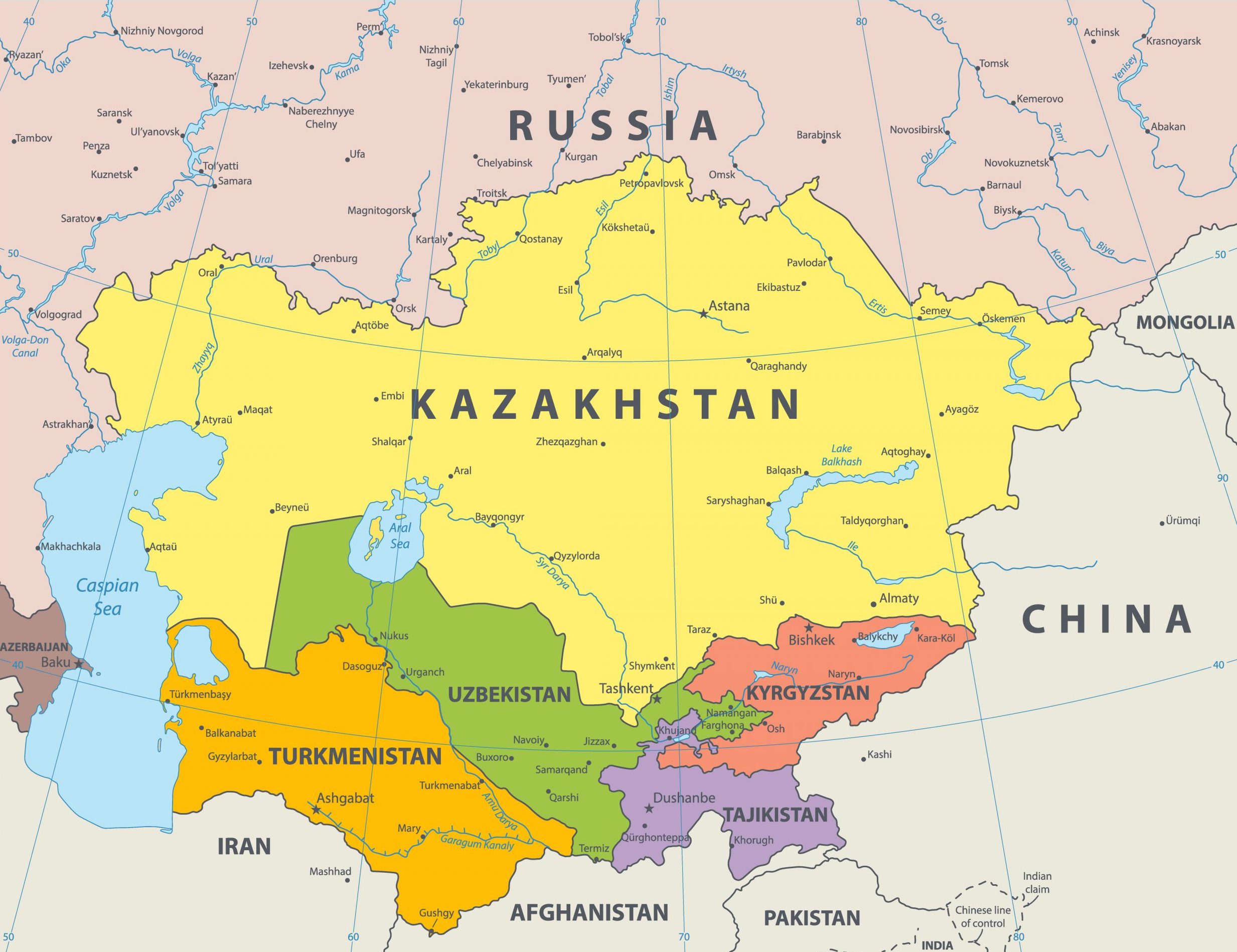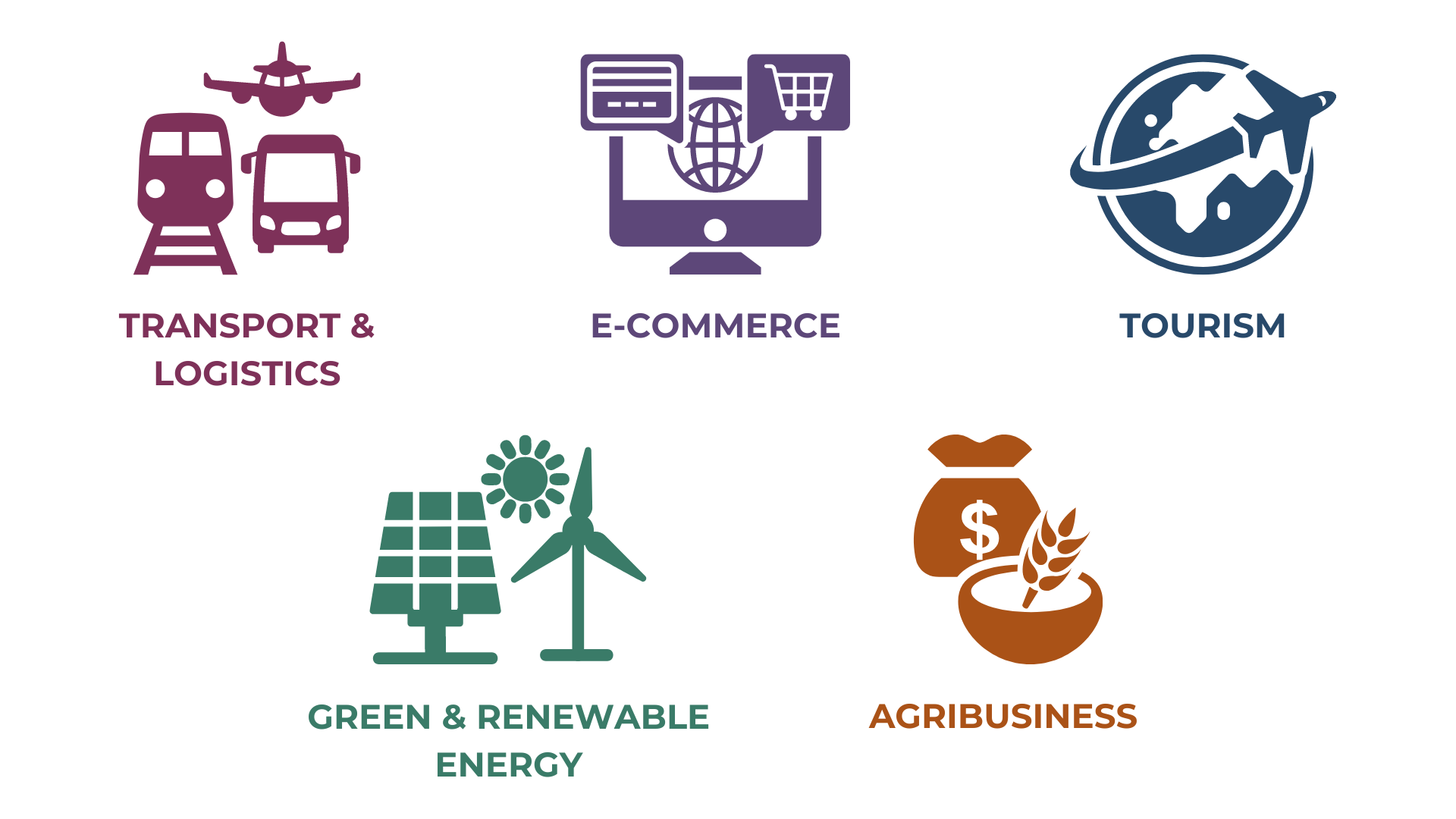Central Asia is considered to be one of the “least connected” regions in the world, in terms of cooperation and trade among the five constituent countries (Kazakhstan, Kyrgyz Republic, Tajikistan, Turkmenistan, and Uzbekistan). They are heavily reliant on trade outside the region, with approximately 70% of investment and trade coming from external markets, according to available data.
Amid shifts in the global geopolitical landscape and supply chain disruptions, there is a growing interest in utilizing Central Asian countries as points of transit via initiatives such as the Trans-Caspian Corridor. These efforts are incentivizing the five countries to seek ways to cooperate and coordinate policy and regulations to ease investment and promote business growth across the region. The aim is to improve transport efficiency and trade for both foreign and local companies, as well as attract more international investment and business.

CIPE-Led Solution: Creating B5+1
As part of this effort, CIPE is working with C5+1 countries (Central Asia and the U.S.), their respective private sectors, and business organizations to identify current barriers to intraregional cooperation and outline areas for opportunity and growth. The aim is to promote Central Asia, not just as transit corridor, but a destination for doing business.
With support from the U.S. Department of State, CIPE led the way in establishing the B5+1 business dialogue platform, a parallel to the C5+1 diplomatic work that will culminate in a high-level conference between private sectors and governments. The conference will be held in Kazakhstan in mid-March and is expected to draw hundreds of attendees from a wide range of sectors and industries.
The establishment of B5+1 closely aligns with commitments made during the September C5+1 Presidential Summit and outlined in a joint statement called the New York Declaration, which included pledges to strengthen economic relationships and improve the business environment for regional economic integration and investments. The leaders also highlighted CIPE’s work to expand private sector dialogue.
B5+1 Forum Focuses
The upcoming Forum aims to deliver on two key commitments in the declaration:
- Accelerating regional cooperation and connectivity
- Improving the business environment for increased U.S. private-sector trade and investment
For over a year, CIPE and its partners across Central Asia have been leading conversations and roundtables with business groups and other major stakeholders to identify themes and practical measures that must be considered when developing economic policies that advance regional integration. This includes extensive consultations and discussions with more than 500 experts and 400 business organizations. As a result, five priority sectors have been identified as likely to be most attractive to international investors and critical for developing regional markets: transport and logistics, e-commerce, tourism, green and renewable energy, and agribusiness.
Five Priority Sectors Identified

There are already signs that the current regional economic integration efforts by the five governments are accelerating growth and job creation by stimulating trade and attracting investment. The B5+1 Forum outcomes are expected to expedite coordination and cooperation, as decisions are increasingly made collectively to improve the region’s trade and business environment.
The B5+1 Forum serves as a platform for government, business and the expert community to engage in dialogue regarding the themes and priorities identified in CIPE’s work convening private sector actors across the five sectors this past year. By developing private sector support for major economic policies towards regional economic integration, the B5+1 Forum will provide an opportunity to enact concrete recommendations and accelerate progress towards increased prosperity and economic security in Central Asia.
B5+1 Forum Details

The B5+1 Forum will take place in Almaty, Kazakhstan on March 14 and 15. The agenda is designed as a platform for key representatives from each of these stakeholder groups to provide their feedback on solutions to doing business in the region and discuss the opportunities for economic growth and interconnectivity:
- Day One (“Looking within Central Asia“) will outline the B5+1 objectives and expected outcomes and provide expert and business perspectives on improving economic integration and the investment climate. Policy makers will share the C5+1 governments’ vision for private sector engagement to achieve common economic goals, along with feedback from the expert and business communities.
- Day Two (“Central Asia’s place in the world economy”) will offer an international perspective on promoting trade and investment flows in Central Asia. Following a keynote address by Dr. S. Frederick Starr on “Central Asia and the World,” panelists from international institutions will reflect on regional achievements, economic development agendas, and emerging partnerships to strengthen economic integration. American companies will share insights on investing in priority sectors in Central Asia, while local business associations will discuss lessons and opportunities for advocacy and public-private dialogue to grow and access new markets, both nationally and regionally.
Over the two days of the Forum, the business community will share its vision for an inclusive economic future focused on growth for all of Central Asia. Governments will have the opportunity to assess the value of private sector recommendations in achieving the C5+1 economic goals. At the end of the event, key participants will be invited to commit through the issuance of a joint statement to work towards a common agenda aimed at enhancing economic cooperation and resilience through improved access to innovation, foreign investment and international trade flows.
The concept of “B5+1” goes beyond the five Central Asian countries and the United States. If the Central Asian countries come together, “Greater Central Asia” will emerge as a destination for business. This cooperation on economic policy and regulation would allow developed economies, including those in Europe, the United States, Japan, Singapore, and others seeking alternative markets in Eurasia, to engage with the B5+1 and access a more cohesive and therefore more attractive shared marketplace in Central Asia, with a population of 77 million, abundant resources, and developed human capital.
The role of the Center for International Private Enterprise as the B5+1 Forum organizer is to assist the private sector in creating its own bottom-up vision for regional economic cooperation, and to facilitate and advocate for the future prosperity of Greater Central Asia. B5+1 is indeed more than six.
About the organizer
B5+1 was initiated as part of a larger program called “Improving the Business Environment in Central Asia” (IBECA), which is administered by the Center for International Private Enterprise (CIPE) – an affiliate of the U.S. Chamber of Commerce (USCC), under the funding from the US Department of State. CIPE will coordinate with the US Chamber of Commerce, drawing on their leadership behind the B7 and B20 platforms.
Join B5+1 Forum
More details and announcements of key speakers for the B5+1 Forum will be announced soon. Please subscribe to CIPE Europe & Eurasia social media channels:
LinkedIn: CIPE Europe & Eurasia
Facebook: @EuropeandEurasiaDepartmentatCIPE
Twitter: @CIPE_EEA
Date: March 14-15, 2024
Venue: Swissotel Wellness Resort Alatau Almaty, Kazakhstan (Address: Tausamaly 50A, Almaty 050067, Kazakhstan)
Published Date: March 04, 2024
